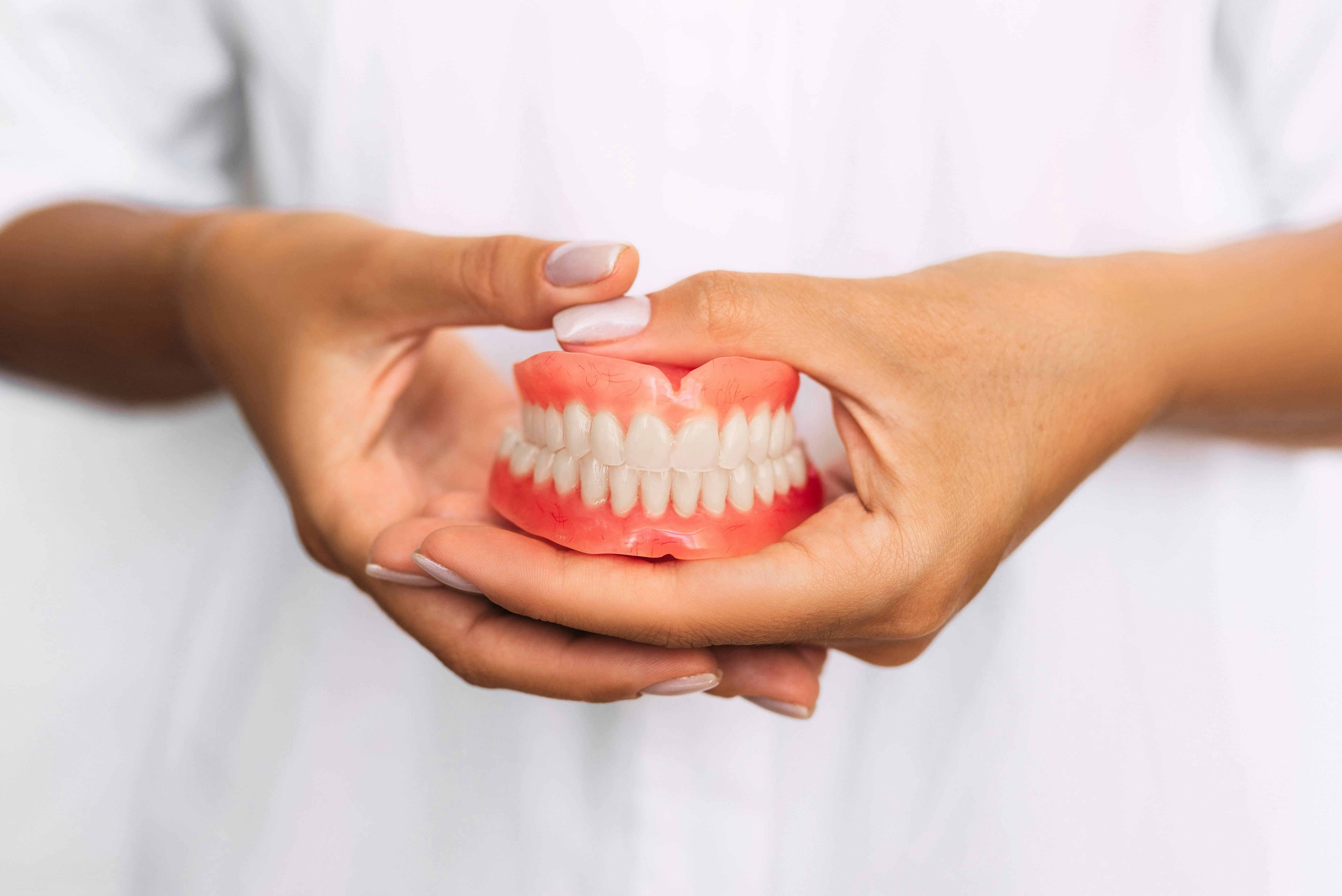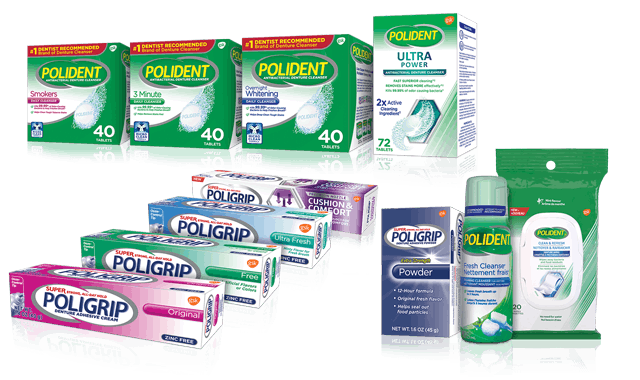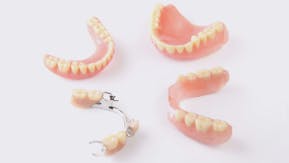Can You Whiten Dentures?
Just like you would natural teeth, it’s important to take care of your dentures and practice good oral hygiene to avoid the buildup of bacteria and stains.1,2 While using a bleaching product to tackle stubborn dentures stains is not recommended,1 there are cleansing products that help remove stains and are safe for use on dentures. Below, we’ll walk you through how to clean dentures to keep your new pearly whites looking their best!
General Denture Cleaning and Maintenance
In general, oral health experts recommend cleaning your dentures at least once every day, in addition to after meals if necessary.1 Cleaning your dentures daily helps protect against the buildup of permanent stains.2 Developing a daily denture cleaning routine is simple and should look something like this:1.2
Step 1: Remove your dentures from your mouth.
Step 2: After removing your dentures, rinse them off to remove any residual food and denture adhesive.
Step 3: Next, brush your dentures with a denture cleanser to further remove food particles and buildup. Be sure to brush the entire surface of the dentures, including the part that sits on your gums. Always brush gently, as using too much force can damage your dentures.
Step 4: Soak your dentures in a denture-cleaning solution to disinfect your dentures as well as remove stains and plaque.
How to Clean Dentures
While the everyday cleansing listed above should remove most stains and buildup, more stubborn stains may need to be removed by a team of dental professionals.1 Some recommend that dentures should be cleaned ultrasonically by a professional at least once a year.3 Ultrasonic denture cleaning may be performed in a dental laboratory or at your local dentist’s office.3 During the process of ultrasonic denture cleaning, a device creates an ultrasonic sound wave and uses suction to loosen and remove foreign particles that are attached to the dentures.3 This ultrasonic cleaning process is referred to as “cavitation.”3
Denture Whitening Products for At-Home Use
To make at-home denture stain removal part of your everyday oral hygiene routine, look for a denture cleanser like Polident Overnight Whitening Denture Cleanser which has cleaning benefits. Polident’s Overnight Whitening Denture Cleaner whitens your full or partial dentures by working to removing surface stains and helping maintain your dentures’ original color. The Overnight Whitening Denture Cleanser contains ingredients like sodium bicarbonate, citric acid, potassium monopersulfate and sodium carbonate peroxide to keep your dentures looking their best. Active ingredients like peroxides, acids, hypochlorites, and enzymes remove the biofilm that accrues on dentures.3 Biofilm results from a buildup of plaque, stains, and calculus and is the substance that a denture cleanser works to clean away.3
When choosing a denture cleanser, be sure to select one that has the ADA seal of approval. The ADA only gives its seal to products that are proven to be safe and effective via clinical study and thorough examination of the ingredient list.2
Denture Whitening Don’ts
To keep your dentures in optimal condition, it’s important to treat them correctly. Here are a few “don’ts” when it comes to whitening your dentures:
DON’T use denture cleanser while your dentures are still in your mouth.
Whitening denture cleansers are not the same as toothpaste and should only be used when the dentures are outside of your mouth.3 Remove your dentures before cleaning then and consider standing over a towel or a bowl of water during the cleansing process. If you drop your dentures, they may break.1
DON’T attempt to whiten dentures using boiling water.
Never try to sanitize or clean your dentures in boiling water. Because of the materials that they’re made of, using water that’s too hot to clean or whiten your dentures may warp their shape.2
DON’T use bleach.
The only products that should be used to clean your dentures are those specifically formulated as denture cleansers. Do not use household cleaning products or bleach! Doing so may damage your dentures.2 Do not soak your dentures in sodium hypochlorite bleach or use products that contain sodium hypochlorite bleach for a period of longer than 10 minutes. Doing so may result in damage to your dentures.3
Preventative Care for Denture Maintenance
If you’re concerned about staining your dentures, be sure to practice good oral hygiene habits as outlined above. Consuming certain foods and beverages may also increase the risk of denture staining—red wine, coffee, and tea are three of the main culprits.1 Smoking may also increase the likelihood of staining your dentures.1 If you notice stubborn stains or a buildup of tartar, bring your dentures to a dental health professional to get a professional cleaning and restore their original color.1
Keeping your dentures clean is just as important as maintaining the health of your natural teeth. For more helpful resources and tips on oral health, check out Polident’s guides to full denture care and partial denture care.






